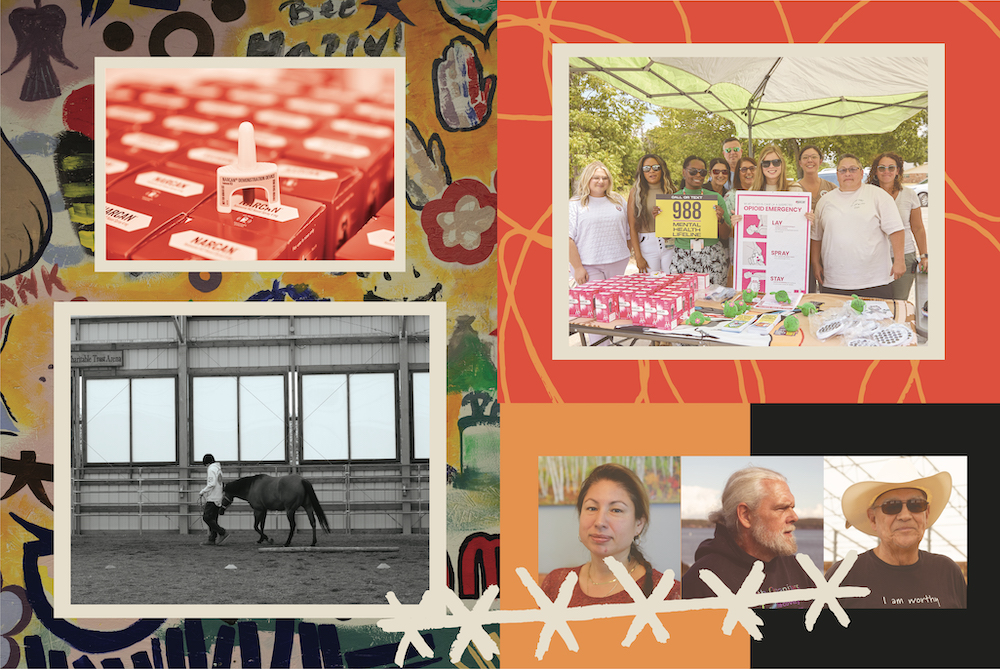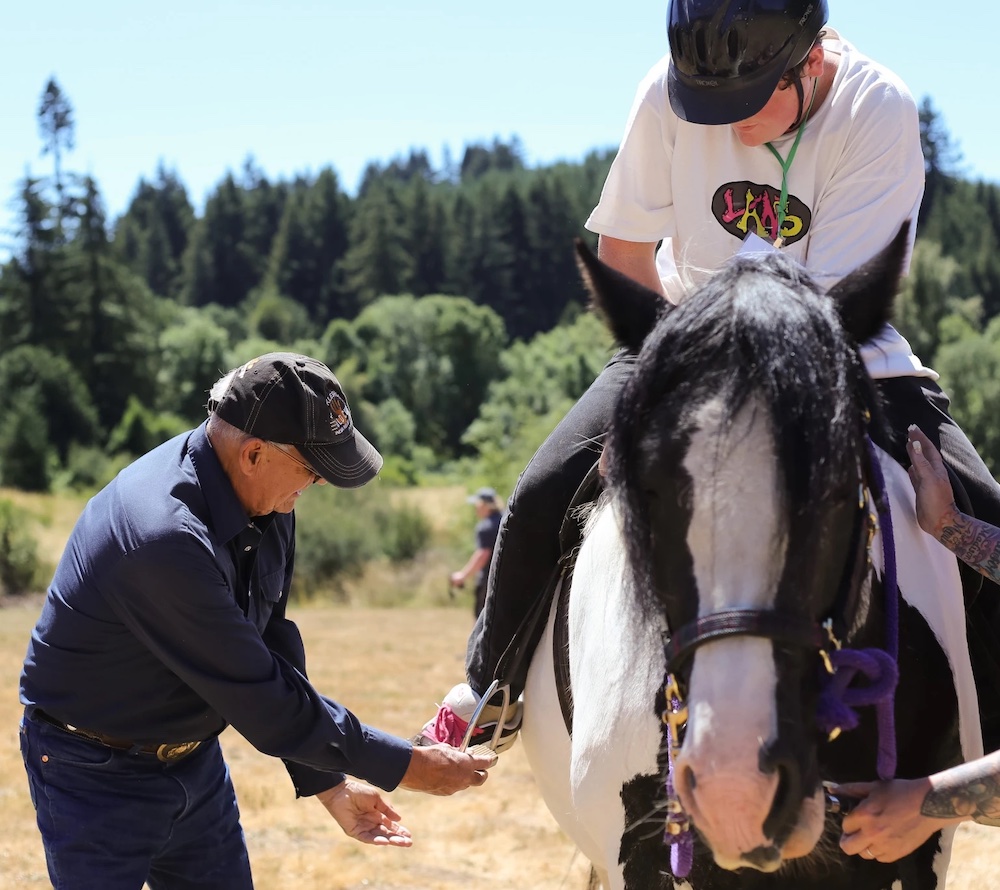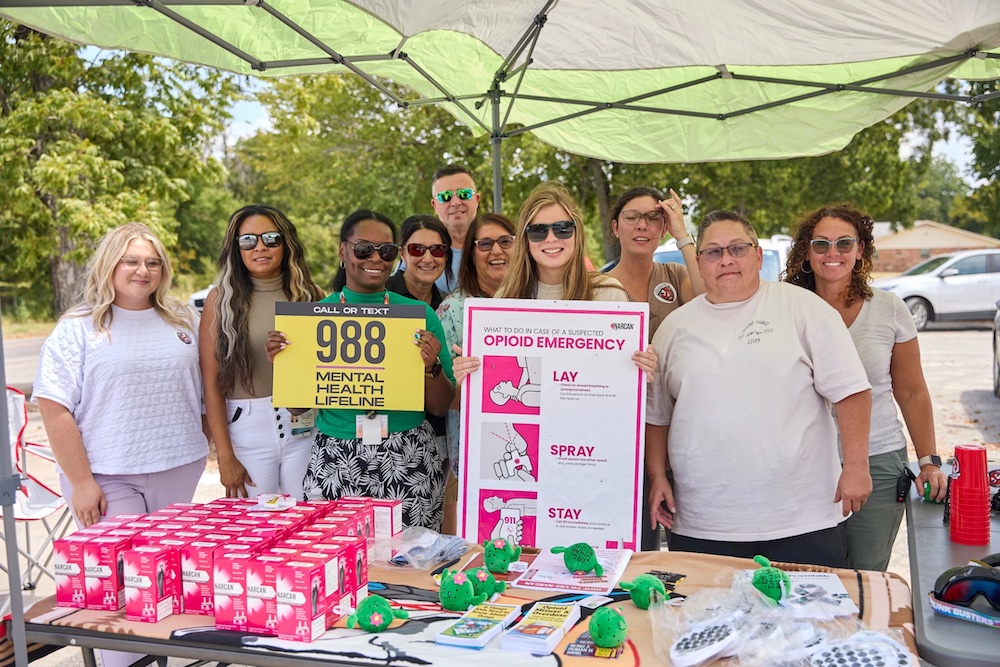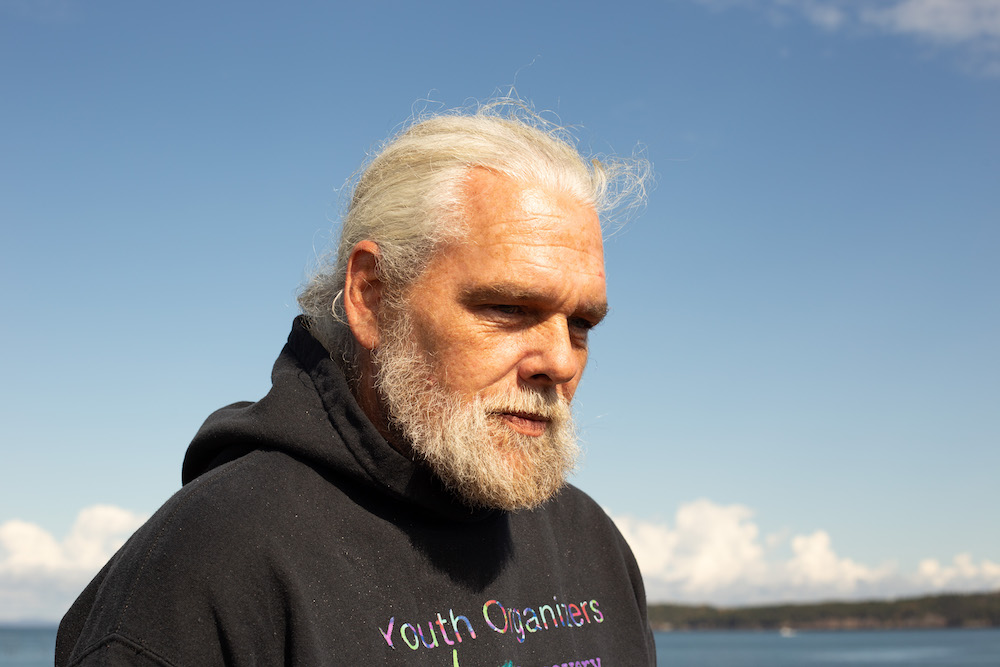
- Details
- By Elyse Wild
Across Indian Country, tribal communities are proving that blending Indigenous practices with Western medicine creates more effective addiction treatment for their citizens. This 3-part series examines how Native-led programs are transforming care for tribal members through prevention, harm reduction, and recovery approaches that honor both traditional and clinical wisdom. This series was produced in partnership with the Pulitzer Center on Crisis Reporting.
 Part One: Prevention | 'You Can't Gangster a Horse'
Part One: Prevention | 'You Can't Gangster a Horse'
Through traditional horsemanship and cultural connections, Native American youth are finding healing at NARA NW in Portland, Oregon. As Native Americans face the highest drug overdose rates among teenagers of any ethnic group, this innovative program blends tribal wisdom with clinical approaches to prevent substance abuse before it starts.
Under the guidance of 83-year-old tribal elder Dr. John Spence, teens learn the sacred relationship between humans and horses - a bond that exemplifies how cultural practices serve as both prevention and treatment.
"The horses have taught me that I'm not the bad person I thought I was," says one young participant. Through experiences like the Seven Sacred Directions of the Horse and traditional talking circles, young participants discover their true selves while connecting with their heritage.
 Part Two: Harm Reduction | Choctaw Nation Found a Better Way to Deliver Harm Reduction. It's Working.
Part Two: Harm Reduction | Choctaw Nation Found a Better Way to Deliver Harm Reduction. It's Working.
When overdose deaths were rising in Native communities, Choctaw Nation found an innovative solution to harm reduction: combining traditional values, Choctaw culture, data, and Western science.
From street-level naloxone distribution to culturally informed treatment, see how this Oklahoma tribe is saving lives and reconnecting people with their culture. Our latest investigation, supported by the Pulitzer Center on Crisis Reporting, shows how they're doing it.
 Part Three: Recovery | 'I Came Back to My Culture, and I Healed.'
Part Three: Recovery | 'I Came Back to My Culture, and I Healed.'
As Maine's tribes confront an addiction crisis, Wabanaki Public Health & Wellness pioneers a treatment model that returns cultural practices to the heart of addiction recovery.
From sweat lodges to medication-assisted treatment centers, they're showing how cultural connection can be key to healing from addiction. In just four years, they've opened two recovery houses, a detox facility, and two medication-assisted treatment centers – all while centering Indigenous values and practices. Read our latest report, supported by the Pulitzer Center on Crisis Reporting.
More Stories Like This
Indian Health Service to Phase Out Mercury-Containing Dental Amalgam by 2027End of Enhanced Obamacare Subsidies Puts Tribal Health Lifeline at Risk
Santa Ynez Tribal Health Clinic to Host Free Pediatric Dental Clinic
Rez Vet Earns Global Recognition for Serving Navajo Nation's Animals
Chickasaw Nation Governor Bill Anoatubby leads groundbreaking for pediatric clinic

